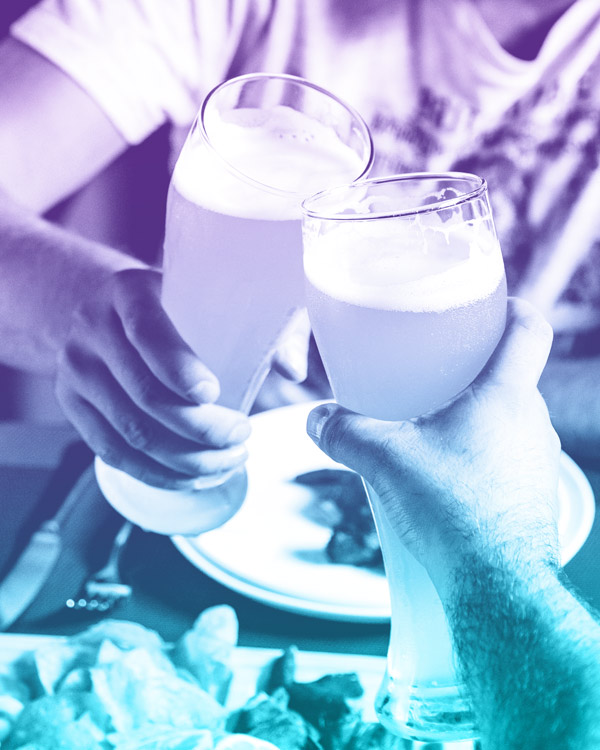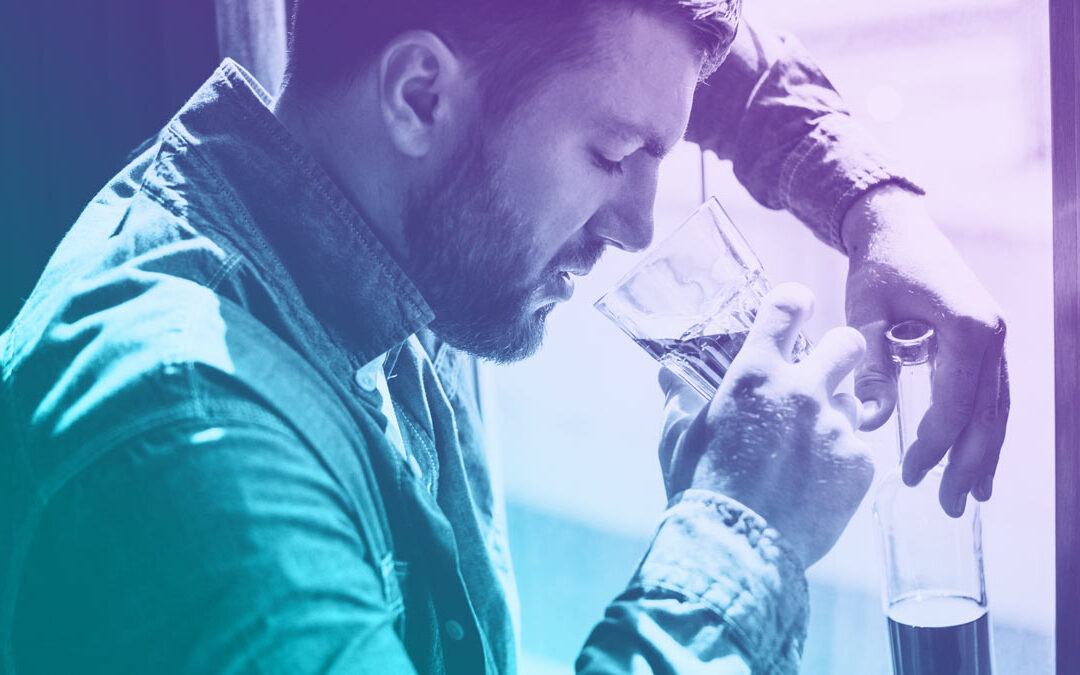Stages of Alcoholism
Everything in moderation. It’s a very common phrase that you might use when talking to your kids about eating candy, but what about things like alcohol? Where is the line from casual drinking to alcoholism? Did you know that over 3.2 million Florida adults admit to binge drinking or heavy drinking within the past year? How does it get to that point? What are the stages of alcoholism?
Here at Clean Recovery Centers, we aim to offer a path to recovery for those looking for a solution for their alcohol use disorder.

We strive to help all of those who are seeking it. We believe part of this help stems from having educational, easy-to-access articles on informative topics so you can be armed with the information you need to make decisions about your health.
What Are the Stages of Alcoholism?
Alcoholism, otherwise known as alcohol use disorder (AUD), is something that can build over time within a person. One drink does not immediately make you an alcoholic, nor does one drunken night with your friends mean you have AUD. The progression of AUD is a bit more complex than that. While the exact timeline of addiction within an individual will vary, we’ve broken it down into four stages.
Let’s take a look at each of these stages to better understand how you might go from one drink to managing an alcohol use disorder.
The Pre-Alcoholic Stage
There isn’t a set timeframe for someone’s first drink that guarantees that they will develop an alcohol use disorder, however, studies show that there is a correlation between how young someone is when they have their first drink and their levels of alcohol consumption later in life. Over 7 million people ages 12-20 reported drinking more than just a few sips of alcohol within the past year. While someone’s first drink doesn’t always mean they will eventually have alcoholism, it’s still the first step on anyone’s journey.
This stage is very experimental, as the person doesn’t yet know what their preferences and tolerance levels are. They tend to try many different kinds of alcohol, sometimes within one sitting. This pattern of multiple drinks can contribute to binge drinking.
Early-Stage Alcoholism
At this stage, alcohol consumption has become more normalized. You don’t have to be drinking all of the time to be in this stage. One of the key factors for this stage is seeing alcohol as a way to de-stress or as a potential hobby or pastime. When it becomes an escape or support in regard to your mental health, this is where it can start to become more dangerous.
Many will start to see, in the later parts of this stage, that they might start to choose to drink over other activities that they would normally participate in.
The Middle Alcoholic Stage
This stage would be considered the peak of alcohol use disorder. The side effects of long-term or regular alcohol consumption will start to become more obvious. These are primarily the mental and societal side effects. A person might see damage occur in their relationships, or see threats of job loss because of their drinking.
Alcohol consumption, at this stage, has become a priority. Many times a person is unable to cut back, even when they want to. Drinking comes before other hobbies and priorities, no matter how important or enjoyable those other activities are. The effects of drinking are taking up a lot of a person’s time and energy, both while they are drinking and when they’re dealing with the aftermath.
Many people start to regularly participate in risky activities while drunk. They have cravings when they aren’t drinking, and might even experience withdrawal symptoms. This stage normally ends with a breaking point, something major enough to get the person to reevaluate their current life path.
End-Stage Alcoholism
This stage is marked by a person feeling out of control in regard to their drinking. The damage done to your body by this stage can be detrimental in more ways than one. Luckily, it’s never too late to start your recovery journey from alcohol use disorder. Even some of the damage done to your organs can be helped and healed with proper treatment.
Alcohol use can negatively impact your whole body. The organs that see the most damage from long-term alcohol use are your heart, liver, brain, and even bones and immune system. Here are some of the most common conditions that can develop from long-term alcohol use:
- Acute pancreatitis
- Myopathy
- Cardiomyopathy
- Hypertension
- Steatosis
- Fibrosis
- Cirrhosis
- Alcohol-related hepatitis
- Microbial dysbiosis
- Gut leakiness
In addition, continuous alcohol consumption can increase your risk of cancer across multiple organs. You also develop an increased risk for things like strokes and pneumonia.
At this stage, stopping drinking will result in withdrawal occurring. Withdrawal symptoms can start as soon as 6 hours after your last drink. Some of the symptoms of withdrawal can be deadly, like seizures. It’s recommended that you go to a detox facility in order to safely withdraw from alcohol.
Signs That Could Indicate Problem Drinking
At what point should you be concerned about how much you’re drinking or how often you’re drinking? If you or a family member has mentioned your drinking before, maybe it should be given more than a passing thought.
When drinking starts to regularly disrupt your life, from constantly thinking about drinking, participating in drinking, or recovering from drinking, you might have developed an alcohol use disorder. Another indicator is if drinking and how you behave because of drinking has started to impact your social life and relationships. If any of this sounds familiar to you, it might be time to consider if this is the path you wish to stay on.
When Should Your Drinking Concern You?
Maybe you’ve heard before that alcoholism can be genetic. If you have loved ones who have had alcohol use disorder, you might need to be more aware of your alcohol consumption patterns. Drinking in moderation on occasion is not something you should be concerned about, regardless of your family’s history of alcohol use. If you think you’re drinking too much or too often, trust your judgment.
How to Help a Loved One Who Has an Alcohol Use Disorder
Many times alcoholism doesn’t just impact the person who’s doing the drinking. It extends to the family and loved ones around them. If you have a loved one who is managing an alcohol use disorder, it’s important to remember that coming in with judgment won’t help the situation. Be open-minded and supportive as they go through their recovery journey. Feel free to offer your help, from driving them to appointments to helping them complete things that may be assigned to them by their therapist. Going through recovery alone is never fun, so being a good support system can greatly help as they continue on their road to healing.
Get Treatment for Alcohol Use Disorder in Florida
If you or a loved one is looking to start the journey of recovery from alcohol use disorder, or if you have any questions about our treatment programs, don’t hesitate to give us a call today at (888) 330-2532. Our staff is here and ready to assist you in any way we can.
FAQs About the Stages of Alcoholism
What is alcoholism?
Alcoholism is classified as someone who drinks regularly and is unable to stop without experiencing harsh cravings or withdrawal.
What are the dangers of alcoholism/AUD?
Alcoholism (alcohol use disorder) comes with many long-term consequences, from damaged relationships and career options, to increased risk of cancer and stroke.
How can you help a loved one with alcoholism?
If you want to help your loved one who is trying to manage their alcohol use, don’t forget to be open-minded and supportive. Coming in full of judgment won’t help.
Sources:
- https://www.niaaa.nih.gov/publications/brochures-and-fact-sheets/underage-drinking


